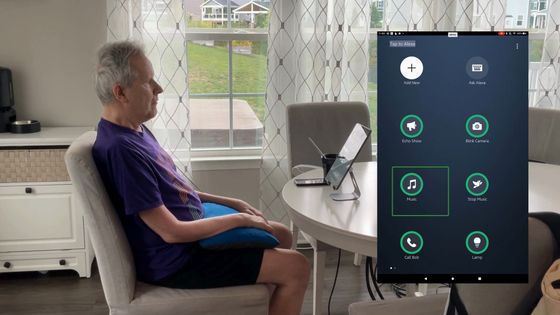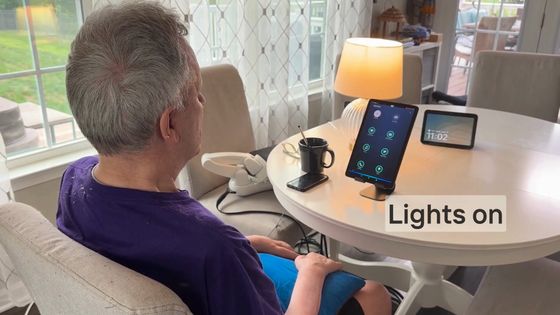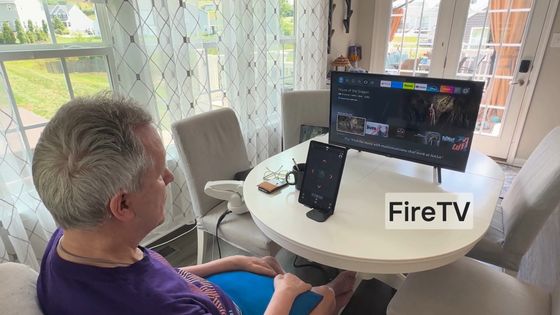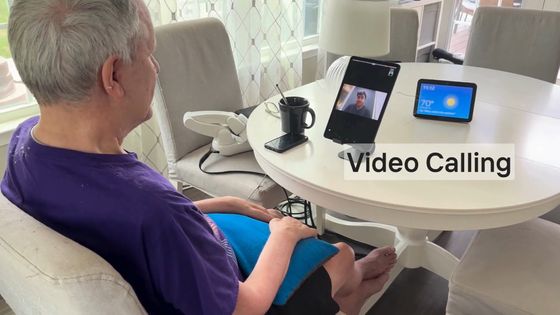Brain implant allows ALS patients to control their smart home with Amazon Alexa using just their thoughts

In recent years, clinical trials have been conducted to implant implants in the brains of physically disabled people to enable them to operate software and games, and Neuralink, founded by Elon Musk, has
Synchron Announces First Use of Amazon's Alexa with a Brain Computer Interface | Business Wire
https://www.businesswire.com/news/home/20240916709941/en/
Amazon Alexa can now be controlled by thought alone - thanks to this brain implant | ZDNET
https://www.zdnet.com/article/amazon-alexa-can-now-be-controlled-by-thought-alone-thanks-to-this-brain-implant/
Synchron is a startup researching and developing brain-computer interfaces (BCIs), and has already conducted clinical trials in the United States. Synchron's BCI is an application of a medical device called a stent , which is used in vascular surgery, etc., and the device is inserted inside the blood vessels running through the brain and placed close to the motor cortex to detect brain signals. This method is considered to be less invasive and safer for patients than the method of opening the head and implanting a device directly into brain tissue.
Synchron recently announced that Mark, a 64-year-old man with ALS, a disease that causes motor neurons to degenerate and muscles to weaken, has successfully controlled Amazon Alexa through a brain implant. You can see Mark actually controlling Amazon Alexa in the video below.
Synchron's brain implant technology allows ALS patients to control Amazon Alexa with just their thoughts - YouTube
Mark, sitting on the left side of the screen, has ALS and is one of the subjects taking part in Synchron's clinical trials.

Mark has a Synchron device implanted in his brain blood vessels that can detect his brain signals.

The stent-based device is inserted through the jugular vein and embedded on the surface of the brain's motor cortex.

This allows BCI to be implemented through minimally invasive surgery.

With Synchron's BCI, Mark can now control Alexa through his Amazon Fire tablet.

Mark uses a feature called 'Tap to Alexa,' which allows him to set tiles that perform Alexa actions in advance and control Alexa via his tablet.

By moving the cursor on your tablet with your thoughts, you can control the on/off of your desk lamp.

Play music or videos

You can make video calls to your friends.

'I'm looking forward to integrating my BCI with smart technology. It's hard to imagine living in modern society without the ability to access and control connected devices like Amazon's Alexa and Echo products that are so prevalent in our daily lives. Being able to manage key aspects of my environment and control my access to entertainment will give me back a sense of independence that I am losing,' said Mark.
'Synchron's BCI bridges the gap between neurotechnology and consumer technology, enabling people with paralysis to regain control of their environment,' said Tom Oxley, CEO and founder of Synchron. 'While many smart home systems rely on voice and touch, we circumvent the need for these inputs by sending control signals directly from the brain. We are excited to leverage our BCI to access the capabilities of Alexa, allowing patients to interact with their home devices using only their thoughts, without using their hands or voice, addressing an important unmet need for many people with motor and speech disabilities.'
Related Posts:







